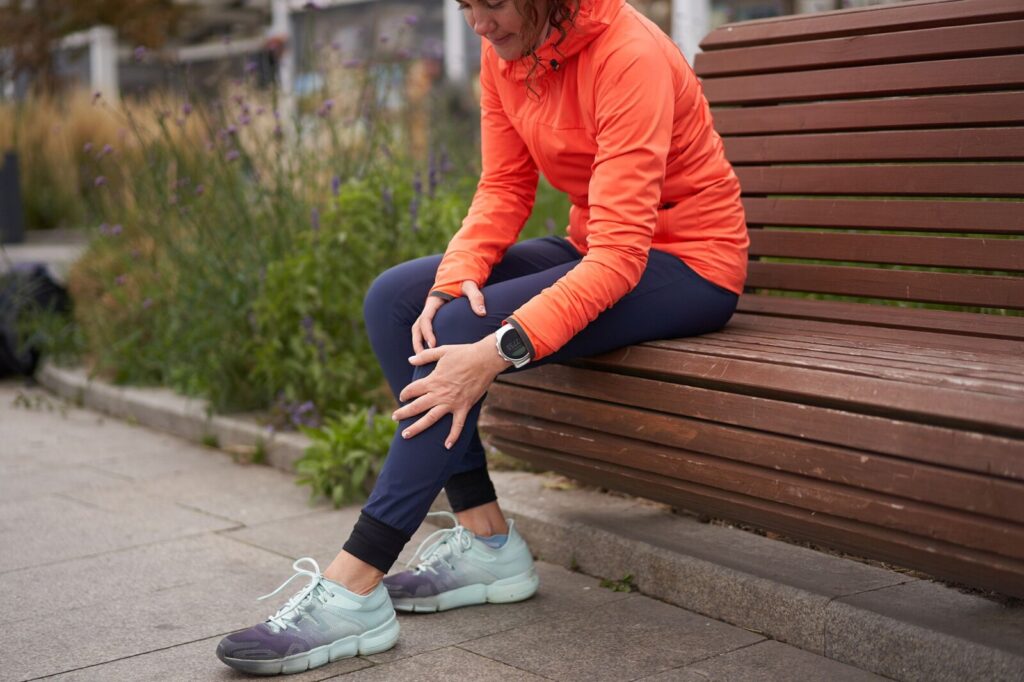In this post we take a look at why you’re still frustrated by injury, pain and muscle tightness despite doing all the right things.

The inspiration for this post came from a conversation I had last week with a prospective client.
Perhaps you can relate.
She was diligently doing all her exercises.
Stretching everything she was told to stretch.
Foam rolling the areas she couldn’t stretch.
And sticking spiky balls where the foam roller wouldn’t reach.
Yet she felt like she was constantly injured and in pain.
She told me just playing a round of golf, which was her passion, would finish her off for the rest of the day.
Why you’re frustrated by injury, pain and muscle tightness
Here’s the simple truth, if you feel like this then you are not doing the right things.
In fact I would go so far as saying the worse you feel, the further away from doing the right things you are.
This might be difficult to hear. Especially since you’ve probably invested a large amount of time and money trying to find out what you should be doing to feel better.
The proof this hasn’t worked is in your lived experience however.
Every time you bend over to pick something up and you feel your back is about to spasm.
Your inability to play with your kids because you’re concerned about your knee flaring up.
The difficulty you have sleeping because you can’t lay on either shoulder.
It’s all there. Your body is sending you very clear messages that what you’re doing isn’t working.
The feel good equation
Everybody I see who’s in this situation has the following equation weighted in the wrong direction.
How you feel = the stuff you’re doing right – the stuff you’re doing wrong.
My job is to rebalance that equation.
Sounds simple right?
In many ways it is. The more challenging aspect is that some things which should be good for you, can actually be bad for you if they’re applied in the wrong way.
Exercise is top of that list.
Exercise can make you feel worse
Done well exercise can be life changing. Too much can have a detrimental effect however.
The biggest issue facing our society today is that most people don’t do enough of it. Therefore most of the messaging is aimed at encouraging people to do more.
If you’re reading this then that probably doesn’t apply to you. You represent a small percentage of the population who actually enjoys exercise and the benefits it brings to your life.
In fact you love it so much you’re a little depressed you can no longer exercise as you would like. You’re also a bit confused, how can something that’s supposed to be good for you make you feel this bad?
I get it.
Broccoli is good for us though right?
Eat too much of it and you’ll go off like a pricked party balloon however.
The dose is key.
How to rebalance the feel good equation
First recognise what’s making you feel worse.
Don’t worry if these things should be good for you, assess whether this is your experience.
Does running always make your knee sore for example?
When you stretch does your back feel worse afterwards?
Does squatting in the gym hurt your hip?
When you have a list, think what you can do to alter these activities.
Try running a little less, or spacing your runs further apart for example. Don’t use that particular stretch, or don’t go as deep in the squat.
Next take a look at your exercise programme, and in particular what you’re doing in the gym.
Simplify your routine and focus on single joint exercises where possible.
To train your legs for example, work on the muscles that bend and extend your knee with a leg curl and a leg extension machine.
Train the muscles of your lower legs with calf raises.
By isolating these areas and training them with care and attention, you’ll quickly highlight problem areas.
And it’s these weaknesses that are most likely contributing to you feeling worse after exercise, rather than better.
Summary
If you’re in pain or discomfort and frustrated by the fact your can’t do the things you enjoy in life, there are steps you can take to change this situation.
Simply carrying on with your current approach is unlikely to work.
Take a pragmatic look at your present routine, and in particular your exercise programme. I’d be surprised if there aren’t changes you can make to help you feel better.